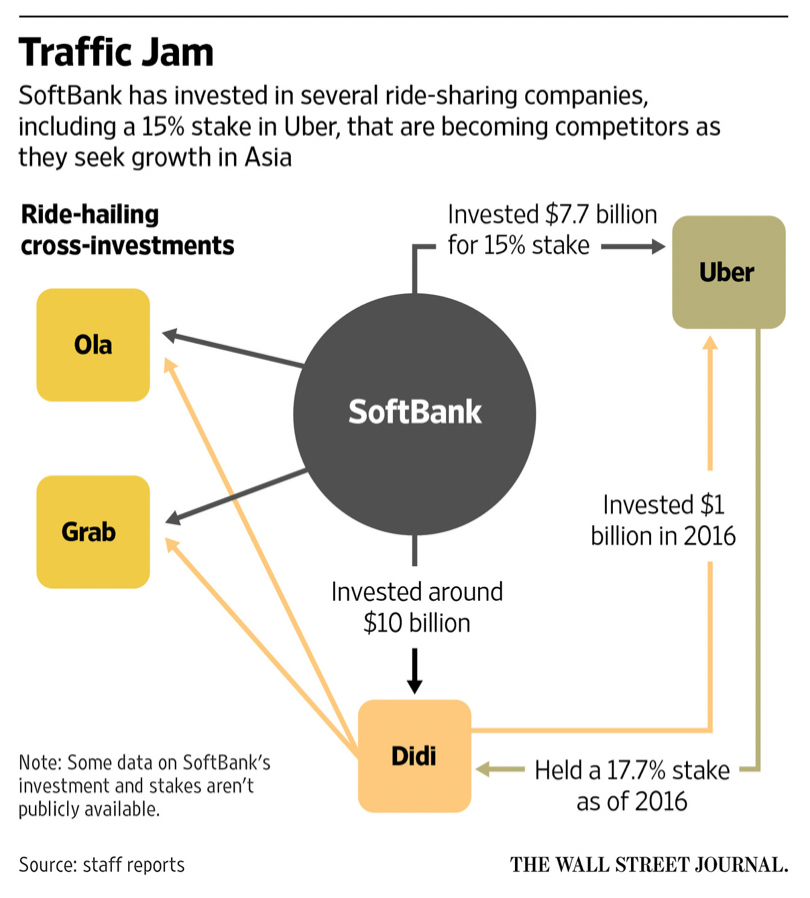Increased EU Restrictions: The Impact On European Mobility

Table of Contents
Restrictions on Travel
The ease of travel within the EU, a hallmark of the Schengen Area, is facing increasing challenges. These restrictions affect both intra-EU and extra-EU travel, impacting tourism and family relations significantly.
Visa and Border Control Tightening
Increased scrutiny at borders is becoming increasingly common. Stricter visa requirements for certain nationalities and longer processing times are creating significant hurdles for those wishing to enter the EU. This has far-reaching consequences:
- Longer wait times at airports and border crossings: This leads to frustration and disruption for travelers, impacting their overall travel experience. Increased queues and delays also affect the efficiency of airport operations.
- Increased documentation requirements for entry: More stringent documentation checks mean travelers need to prepare more extensively before their journey, adding complexity and potential costs. This disproportionately affects those less familiar with the administrative processes.
- Impact on the tourism sector and related industries: Restrictions on tourism directly harm businesses relying on EU mobility, such as hotels, restaurants, and transportation services. Reduced tourist numbers translate to job losses and economic downturn.
- Potential for increased costs associated with travel: Additional fees for visa applications, increased insurance premiums, and higher costs associated with longer travel times all contribute to the increased financial burden of EU travel.
Internal Border Controls Reintroduced
While the Schengen Area aims for seamless movement, internal border controls are sometimes reintroduced in response to security concerns or specific crises. This directly impacts the free flow of people within the EU:
- Increased travel time and disruption for commuters and travellers: Reintroducing internal border controls significantly increases travel time for those commuting across borders or traveling within the EU. This disruption affects both individuals and businesses.
- Potential economic consequences for cross-border businesses: Businesses relying on cross-border movements of goods and services face significant delays and disruptions, affecting their productivity and profitability. The logistics of transporting goods become far more complex.
- Impact on the Schengen Area’s principles of free movement: The reintroduction of internal border controls undermines the very principles upon which the Schengen Area is founded, creating uncertainty and potentially hindering future cooperation.
- Concerns about potential discrimination based on nationality: The implementation of border controls can, unintentionally or otherwise, lead to discriminatory practices based on nationality, leading to ethical and legal concerns.
Impact on the Job Market and Workforce Mobility
The free movement of workers has been a cornerstone of the EU's success. However, increased restrictions are beginning to impact the job market and workforce mobility.
Restrictions on Cross-border Employment
New regulations and stricter enforcement measures are making it harder for EU citizens to find work in other member states. This has several negative consequences:
- Increased bureaucratic hurdles for job seekers: Navigating complex immigration procedures and obtaining necessary work permits can be time-consuming and expensive, discouraging potential job seekers.
- Potential skills shortages in certain sectors: Restricting the free movement of workers can create skills shortages in sectors heavily reliant on cross-border labor, impacting economic growth.
- Impact on economic growth and competitiveness: A less mobile workforce can hamper economic growth and reduce the EU’s competitiveness in the global market. This restricts the ability of businesses to access the best talent.
- Implications for the free movement of workers enshrined in EU law: Increased restrictions challenge the core principle of the free movement of workers within the EU, creating legal and political challenges.
Changes in Recognition of Professional Qualifications
Difficulties in obtaining professional recognition in different EU countries limit career opportunities for EU citizens.
- Increased costs and time associated with qualification recognition: The processes for recognizing professional qualifications in different countries are often lengthy and expensive, discouraging professionals from seeking work abroad.
- Limited career progression for highly skilled professionals: The inability to have qualifications easily recognized limits career advancement for highly skilled professionals, potentially leading to underemployment.
- Potential brain drain from countries with stricter recognition processes: Stricter recognition processes could lead to a "brain drain," as skilled professionals seek opportunities in countries with more streamlined systems.
- Challenges for the integration of professionals into new markets: Difficulties in getting qualifications recognized hamper the integration of professionals into new labor markets, impacting both the individual and the receiving country.
The Socio-Economic Consequences of Reduced European Mobility
Reduced European mobility has wide-ranging socio-economic consequences affecting communities and the economy as a whole.
Impact on Social Cohesion and Integration
Reduced mobility can lead to social isolation and hinder the integration of migrant communities.
- Reduced cross-cultural exchange and understanding: Limited interaction between people from different EU countries diminishes cross-cultural understanding and empathy, potentially fostering social division.
- Potential for increased social divisions and inequalities: Restrictions on mobility can exacerbate existing social inequalities, particularly affecting vulnerable groups.
- Impact on community development and social networks: Reduced mobility weakens social networks and hinders community development, particularly in border regions.
- The importance of maintaining free movement for social cohesion: Free movement is essential for fostering social cohesion and inclusivity within the EU.
Economic Implications of Decreased Cross-border Activity
Restricted movement reduces economic activity and investment across borders.
- Decrease in cross-border trade and investment: Restrictions on mobility can severely limit cross-border trade and investment, hindering economic growth.
- Negative impact on regional development and economic growth: Reduced cross-border activity can negatively impact regional development, particularly in border regions dependent on cross-border interactions.
- Potential loss of revenue for businesses and governments: Reduced economic activity due to restricted mobility translates into lost revenue for businesses and governments alike.
- The importance of open borders for economic prosperity: Open borders and free movement are essential for fostering economic prosperity within the EU.
Conclusion
The increased EU restrictions on European mobility present a complex challenge with far-reaching consequences. From impacting tourism and the job market to affecting social cohesion and economic growth, these changes require careful consideration. Maintaining a balance between security concerns and the fundamental principles of free movement is crucial for the future of the European Union. To stay informed about the latest developments and their impact on your mobility plans, continue to monitor updates regarding European mobility and engage in constructive dialogue around these important issues. Understanding the nuances of European mobility is paramount to navigating this evolving landscape.

Featured Posts
-
 Discover Orlandos Fringe Festival A Longstanding Tradition At Loch Haven Park
May 19, 2025
Discover Orlandos Fringe Festival A Longstanding Tradition At Loch Haven Park
May 19, 2025 -
 Ufc Vegas 106 A Complete Guide To Burns Vs Morales Odds And Predictions
May 19, 2025
Ufc Vegas 106 A Complete Guide To Burns Vs Morales Odds And Predictions
May 19, 2025 -
 Uber Pet Service Now Available In Delhi And Mumbai
May 19, 2025
Uber Pet Service Now Available In Delhi And Mumbai
May 19, 2025 -
 Evaluating Uber Technologies Uber As An Investment
May 19, 2025
Evaluating Uber Technologies Uber As An Investment
May 19, 2025 -
 Ufc 313 A Rookie Report Newcomers To Look Out For
May 19, 2025
Ufc 313 A Rookie Report Newcomers To Look Out For
May 19, 2025
Latest Posts
-
 Celebrating Vermonts 2025 Presidential Scholars
May 19, 2025
Celebrating Vermonts 2025 Presidential Scholars
May 19, 2025 -
 Vermont Agency Of Education 2025 Presidential Scholars Revealed
May 19, 2025
Vermont Agency Of Education 2025 Presidential Scholars Revealed
May 19, 2025 -
 Justice For Stolen Dreams A Restaurant Owners Plea For Accountability
May 19, 2025
Justice For Stolen Dreams A Restaurant Owners Plea For Accountability
May 19, 2025 -
 Meet Vermonts 2025 Presidential Scholars
May 19, 2025
Meet Vermonts 2025 Presidential Scholars
May 19, 2025 -
 Accountability Sought Restaurant Owners Fight After Business Theft
May 19, 2025
Accountability Sought Restaurant Owners Fight After Business Theft
May 19, 2025
